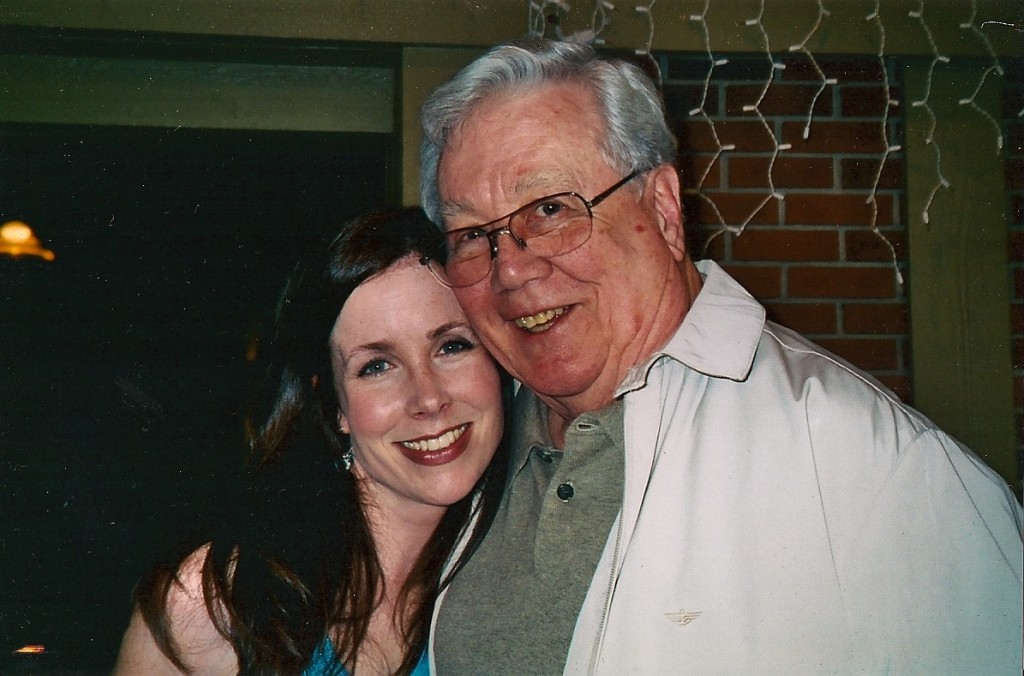My dad ate poached eggs and toast for breakfast every day when I was a teenager living with him in Livonia, Michigan. He woke up at 5 a.m., put on a pot of coffee, read the paper and made his simple but satisfying morning meal. He didn’t say much as he sat at the kitchen table, methodically planning his morning. His shift as security director at Mount Sinai Hospital in Detroit didn’t start until 3 p.m., but he had things he needed to accomplish beforehand. Each moment would have a purpose; no task would go undone.
As a World War II veteran and retired Detroit police officer, my father experienced turbulence and loss throughout most of his life. At 18 he was on board a U.S. Navy ship bombed by a Japanese suicide plane in the Sulu Sea. A torpedo from a nearby destroyer sunk the U.S.S. Ommaney Bay, and 95 of his fellow Navy men were lost.
Whatever remained of my father’s innocence sank to the bottom of the sea with his ship. He returned to the states suffering from what would now be diagnosed as post-traumatic stress disorder. He was haunted by what he had seen and needed to re-establish order in his life. He went from the Navy to the police department, finding comfort in the structure of enforcing the law.
But the chaos followed him, professionally and personally.
It traveled with him through the streets of Detroit as a beat cop, and as he climbed the department ranks to become an inspector. In 1967 it took shape in the Detroit riots, the violence and destruction of which left the city he fought to protect in ruins.
That same year he and my mother faced the personal upheaval of an unexpected pregnancy. They were relieved and pleased that what my 40-year-old mother thought might be a tumor turned out to be a baby. Two-and-a-half years later, she was diagnosed with leukemia and died within six weeks. My older siblings stayed with my father in Detroit, and I went to live with my aunt and uncle in nearby Southfield. Two teenagers were enough; a toddler was more than a devastated widower could handle.
At 11, I returned to live with my father, a man I barely knew, and his new wife. I didn’t understand him or his rituals. I didn’t know about the things that had happened to him or what he had seen. I couldn’t possibly comprehend the significance of his morning routine, the structure he imposed on his life. I wouldn’t realize who my father was and why until I heard his stories years later and then experienced firsthand some of the chaos and loss that come with adulthood, including his death six years ago.
Now, as a wife and mother of two, I find comfort in morning rituals of my own. I pop out of bed at 6 a.m., rouse my bleary-eyed children and head downstairs to prepare their lunches. I make myself a cup of coffee, turn on the television for the local weather report, and silently and methodically plan my day. Each moment will have a purpose; no task will go undone.
I am my father’s daughter.



